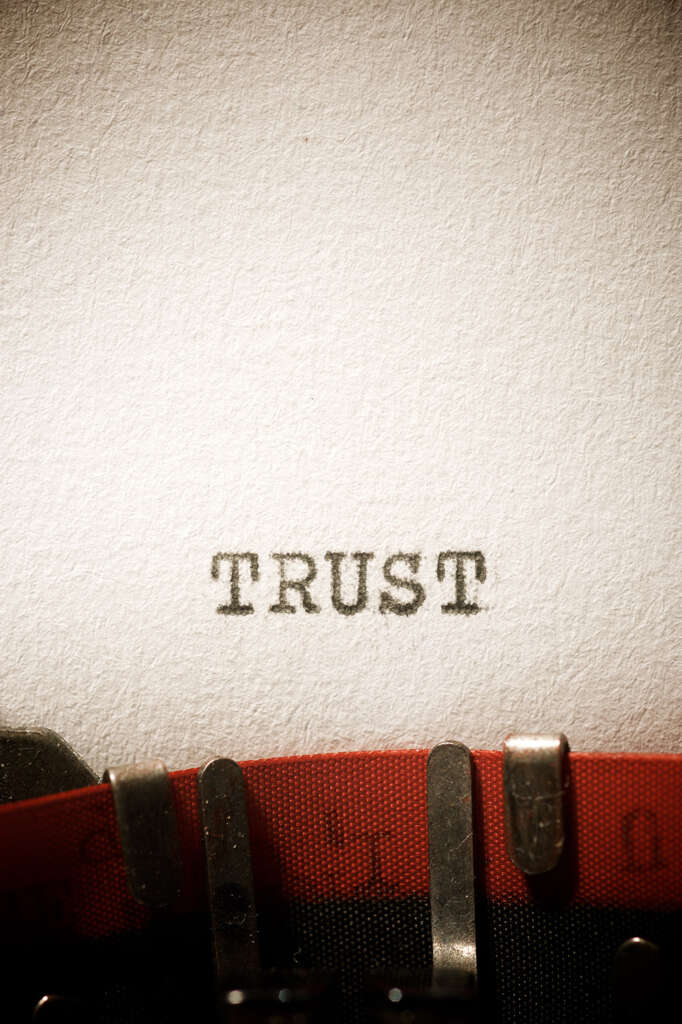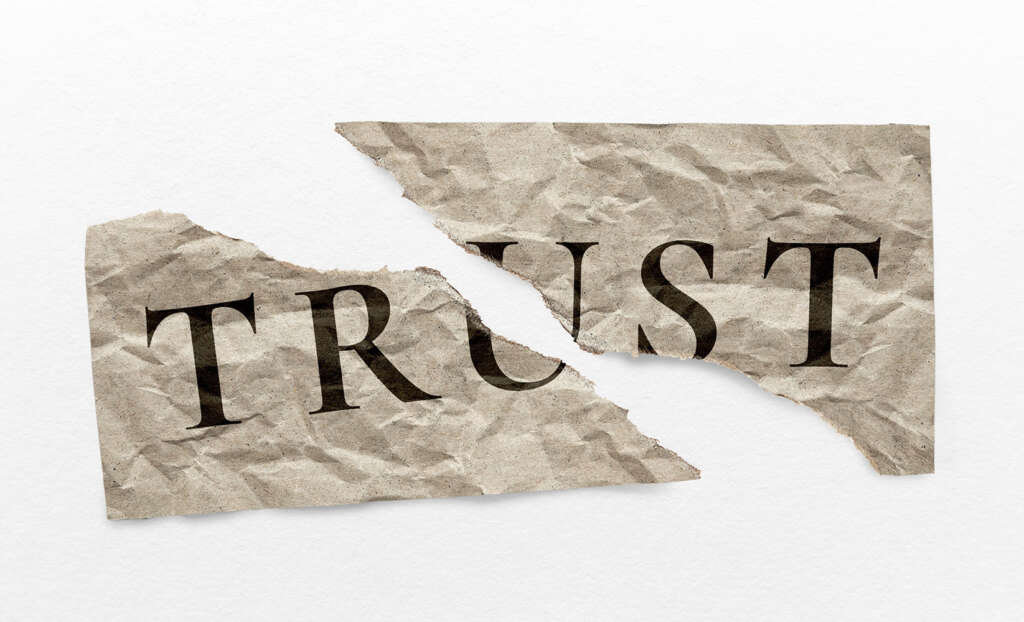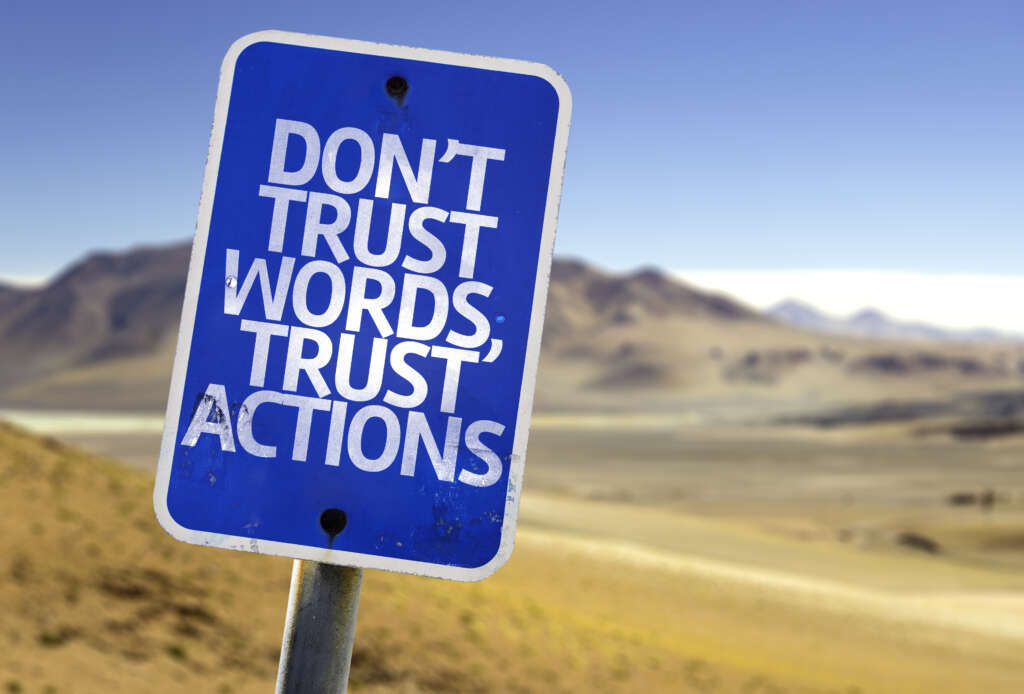
Friedrich Nietzsche, a German Scholar, described trust as an “affective attitude,” meaning it involves a positive belief that someone will act in a trustworthy manner. Other prominent Philosophers considered trust to be a kind of reliance that involves not just depending on someone, but also a sense of vulnerability, where a betrayal can occur if trust is violated, making it more than just mere reliance.
Trust is not generally something that is present at the very beginning of a relationship, but instead it develops over time, seemingly unbeknownst to us. Couples who possess a solid trust between them in their relationship live in an unspoken space of security and commitment – while couple’s who do not – live in a space of fear, anxiety, and unknowing.
What does trust look like?
As humans, we are unconsciously trusting in things all day every day. We trust that our alarm with go off in the morning so we are not late for work. We trust that our car will start. We trust that the person driving next to us will stay in their lane and not sideswipe us. Trusting in the unknowns is necessary. It allows us to move through our lives without being consumed by fear or worry about what happens next.
In our primary relationships, trust is much more personal and much more complicated. Trust is one of the pillars of a healthy relationship. Trust allows couples to be open and vulnerable with one another and to navigate life’s unavoidable ups and downs as a team.

Damaged vs. Broken Trust
Most (if not all) of the couples I see in my practice, struggle with either damaged or broken trust, and many are not even aware of it. In a relationship, it’s not just the obvious betrayals, like lying or infidelity that affect trust – trust is fragile, and even seemingly small things – like fighting about the same things over and over again, speaking disrespectfully to one another, not prioritizing quality time, or even difficulties with communication, can slowly chip away at trust leading partners to become emotionally distant and disconnected from one another.
Healthy relationships are built on trust, and once there is a break, we begin questioning everything we thought we knew to be true about both the relationship and the other person. Mistrust can poison the relationship, leading to confusion, doubt, worry, and fear.
Can Trust Be Restored?
The short answer is yes – trust can be restored. But, because trust is both complicated and fragile, each individual’s ability to navigate the road to rebuilding and regaining trust is different. Without trust, the partner that was betrayed must live in a place of fear and uncertainty as they work to heal themselves and forgive, while the betrayer lives in a place of guilt, shame, and uncertainty, about the future of the relationship.

How Is Trust Restored?
Trust is restored over time by consistent changes in behavior on the part of the betrayer. This means that the person responsible for the break in trust must work towards proving to their partner that they are fully committed to them and to the relationship. The ways they prove themselves may vary from situation to situation and relationship to relationship. If, for instance, there has been an infidelity, the betrayer might need be completely open and transparent about their whereabouts, allowing their partner to always know their location. Additionally, the betrayed partner may have expectations around having access to electronic devices such as cell phones, iPads, and computers – for periodic reviews of email accounts, text messages, and voicemails. Full transparency can reassure the betrayed partner, and helps to alleviate anxiety and fear.
Final Thoughts
When we have trust in our partner, we have complete confidence that they love us, respect us, and are committed to our relationship. But when trust has been damaged or broken, we are left questioning all the things we believed to be true about our partner and our relationship.
Trust CAN be restored, but getting it back can be a long and bumpy road. Partners must be self-aware, consistent, and patient, with themselves and with each other, while maintaining honest and open communication throughout the journey. If there has been a break in trust in your relationship, please reach out – I can help you rebuild it!


